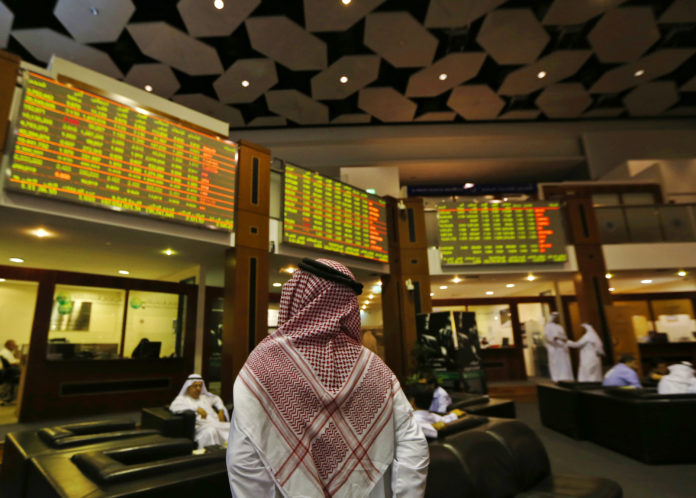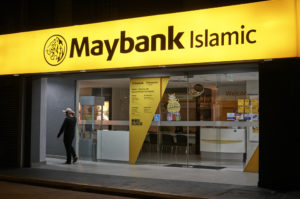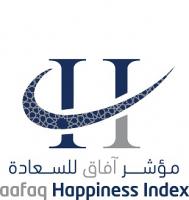
The global Islamic finance market could expand dramatically if its goals were combined with goals embodied in ESG funds.
ESG (Environmental, Social, and Governance) funds now have about $35 trillion under management globally. Estimates for ESG are so optimistic that this investing category is expected to hit $53 trillion by 2025, accounting for one-third of all investable assets.
In contrast, Shariah funds have grown 300% over the past decade. Still, this sector has only attracted $200 billion in assets, according to the Bahrain-based General Council for Islamic Banks and Financial Institutions (CIBAFI).
This growth could be vastly accelerated if Islamic investment funds adopted common global regulatory and legal standards. Adopting these proposed standards would benefit ESG funds if they began practicing the investing criteria specified in Shariah law.
Combining ESG and Islamic Finance Principles
According to Maybank Islamic Berhad, a recent study found that over one-third of financial professionals who practice Islamic finance said they expect to see a significant increase in the number of Islamic funds that offer ESG and Islamic Shariah compliance over the next two years.
The study by Maybank Islamic Berhad, the Islamic banking arm of Maybank Group, and IslamicMarkets.com based in Malaysia, found that 73% of professionals working for financial firms said the demand for ESG products is not being met because they do not meet the standards required under Shariah law. 
The global Islamic funds market has expanded by over 300% in the last decade. It is now estimated to reach $200 billion in assets under management, according to the General Council for Islamic Banks and Financial Institutions, in Bahrain. Islamic finance assets are concentrated in the Gulf Cooperation Council region (48.9%), the Middle East and South Asia region (24.9%), South-East Asia region (20.3%), Africa region (1.7%), and “Others” (4.3%), according to a 2021 study by the Islamic Financial Services Board.
The study said that if Shariah law and ESG criteria were combined in new products, the sector could see the growth rate expand significantly.
Islamic finance is estimated to reach $200 billion in assets under management
“Islamic Finance is indeed growing strongly, but we believe the growth could be further boosted if it was able to offer Shariah and ESG-compliant funds globally. This study shows that potential demand for such funds would rise from traditional and non-Muslim investors,” Maybank Islamic Chief Executive Officer Dato’ Mohamed Rafique Merican said in a press release.
While the principles of Islamic finance are not well-known in non-Islamic nations, its central tenet is based on Maqāṣid al-Sharīʻah, which contains the fundamental investment principles of Shariah. According to the Islamic Financial Services Board, this religious tenet states that investments must “promote and protect the interests of all human beings and avert all harm that impairs their interests.”
Lack of a Global ESG Standard Impeding Growth
While the number of funds and assets under management have increased among Islamic investors in Africa, the Middle East, and Southeast Asia, Shakeeb Saqlain, founder and CEO of IslamicMarkets.com, said the Islamic finance sector lacks “a global regulatory and legal framework.”
If a standardized framework were adopted, the Maybank study found that 72% of those questioned believe the combination of Shariah and ESG-compliant funds would boost investment demand from both non-Muslims and Muslims.
Abdelilah Belatik, secretary general of the Islamic Financial Services Industry (IFSI), earlier stated this view. In a January 2022 report, the group said, “With the growing market for ESG investing, Islamic funds possess a huge growth potential and are expected to play a prominent role in the Islamic Financial Services Industry in the coming years.” This is especially true if sustainability criteria are used.
Sharia Funds Lagging Compared to ESG Funds
But, despite the overlap in ESG and Sharia investing principles, assets under management in Shariah funds have not kept pace with the growth in ESG funds.
The Schroder’s report offered a possible explanation for this divergence. “The current limited range of Shariah-compliant investment products fails to meet Muslim investors’ broader preferences, in addition to Shariah-compliance alone. For example, the lack of an explicit focus on sustainability within the majority of Shariah equity funds could be pushing investors motivated by ESG considerations to the traditional sustainability arena instead of the Shariah arena.”
The report also found that adding sustainability criteria to a Shariah portfolio “recognizes that sustainability principles are at the core of Islamic beliefs, a fact which has failed to receive the prominence it deserves among traditional Shariah investment products,” said Lily Choh, Schroders’ Head of Distribution Southeast Asia and Head of Institutional Business Asia.
However, a different viewpoint was offered by Monem Salam, executive vice president and portfolio manager at Saturna Capital: “When it comes to ESG standards, we in the world of Sharia investing are in a different place.

“There are no centuries-old guidelines to steer standardization,” Salam said. “The sector could borrow part of the Islamic investing approach, however. With Shariah-compliant investing, our advisor is there to field questions and audit our funds. An independent ESG body could serve the same purpose by advising on ESG products and serving as a third-party auditor, which can also be used for risk mitigation, i.e., a regulator to look at audit reports to make sure a fund complex is following the rules it sets out for itself.”
What Makes Islamic Finance Different
Saturna Capital is the best-known provider of Sharia-compliant mutual funds in the US. The Amana fund family includes four funds totaling over $5 billion in assets. Their funds follow both Islamic and ESG investing principles. They eliminate companies whose operations do not comply with the teachings of the Koran. This includes companies whose business operations charge interest and engage in gambling, tobacco, pork production, alcohol manufacturing, pornography, and weapons manufacturing.
On the fixed-income side, Sharia-complaint funds invest in Sukuk certificates rather than traditional bonds. Using a Sukuk certificate, a holder owns a portion of a pool of assets that generate revenue, which is then distributed back to Sukuk holders. Since the Sukuk generates revenues rather than charging interest, it is permissible under Sharia law.
The Growth Potential of ESG and Sharia Funds is Significant
ESG funds are especially popular in Europe and other developed markets. In 2021, they posted a record year with an estimated $120 billion in new assets, more than double the $51 billion in new inflows seen in 2020. 
If ESG and investments following Sharia law were combined, the new financial products would appeal more to the 1.8 billion Muslims globally, who represent approximately a quarter of the world’s population.
However, developing a global standard is a slow process. The Maybank study found that 55% of respondents said launching a global standard is at least two years away. According to Maybank, only 52% expect “good progress or even dramatic progress” within the next two years.
This may also be because adopting a standard for investment products requires strict criteria and oversight. For instance, when ESG entered mainstream investing, “it required very little to apply the label to existing fund products. The result was that overnight, billions of dollars were suddenly categorized as ESG. That inflated the perception of inflows. We expect that will be corrected as more guardrails are put in place around ESG and sustainable investing.,” according to Salam of Saturna Capital.
ESG vs. Sharia Fund Fee and Performance Comparisons
In addition to fund availability, one key reason why ESG funds may be more popular than Sharia-based funds is their fees and performance.
A fee study by Morningstar found that investors in ESG funds were paying higher fees than investors in non-ESG funds. Specifically, there was a higher asset-weighted average expense ratio for ESG funds (0.61%) compared with their traditional funds (0.41%).
It’s difficult to make exact performance comparisons between the two groups of funds. One reason is that many Sharia-complaint funds do not operate in the US and are not based on US dollars. However, an examination of the largest US-based Sharia-compliant funds and ETFs found positive performances.
The Amana Growth Fund (AMAGX), the largest Sharia-compliant fund offered in the US, outperformed the S&P 500 in 2021 and the past ten years. The fund returned almost 33% over the past three years, vs. 26% for the S&P 500, 18% over the past ten years, vs. 16.5% for the S&P, according to the site Sustain.com. AMAGX also has an expense ratio of 0.95%.
The largest halal ETF, the Wahed FTSE USA Shariah ETF (HLAL), also beat the S&P 500 in both 2020 and 2021, Sustain.com reported. The HLAL ETF has an expense ratio of 0.50%.
How Islamic Investing Manages Interest and Speculation
Two key factors that make Islamic finance different from other investment products are how interest is charged to borrowers and investors and how speculative investments are made.
Islamic finance operates within the framework of Shariah and its objectives, which is called Maqasid. Shariah is a divinely inspired code of conduct.
Islamic economics today deals with creating a system of social justice and wealth distribution that allows individuals to meet their obligations to Allah and society. Man can use worldly resources, but Allah ultimately owns them. As such, individuals should consider themselves trustees of natural resources. They also can enjoy any wealth derived legally and through inheritance.
The Shariah banking system specifies prohibitions against certain practices, particularly prohibited gain (Riba), gambling (Qimar), inadequate price knowledge, or business practices. Riba is the return on an investment or a form of cash return earned without taking any liability for lending capital. Aside from the re-payment of the principal, Riba covers gains from loans, debts, and sales contracts. Riba is always prohibited whether the interest is minimal or exorbitant (usurious) since it is always unjust and unethical, favors the rich over the poor, and thus harms society. Whenever someone’s rights are violated, it violates Shariah.
Islamic finance does not allow interest charges. Interest charges are only allowed when made on Sharia-compliant assets or funds.
Islamic finance has also adapted to modern markets, including the broader use of debt securitization via Sukuk. These certificates represent an undivided interest in a pool of tangible assets of equal value. Sukuk certificates began circulating in the early 1980s and have become more popular financial instruments since they serve as alternative financing sources to issuing pure debt instruments. They have become prevalent for financing state and corporate capital projects.
Sukuk expanded the Islamic capital markets because they use mixed asset pools (equities and debt) to generate a return through proportionate ownership. Both are essential under Shari ah law. In the second quarter of 2021, the global outstanding Sukuk market reached $754.1 billion, according to FitchRatings.










